Explore the remarkable projects completed by previous cohorts, offering valuable insights into the diverse range of topics and areas of expertise our students have delved into. These projects serve as a testament to the innovative and imaginative work produced within our program.
Ventures 2023-2024
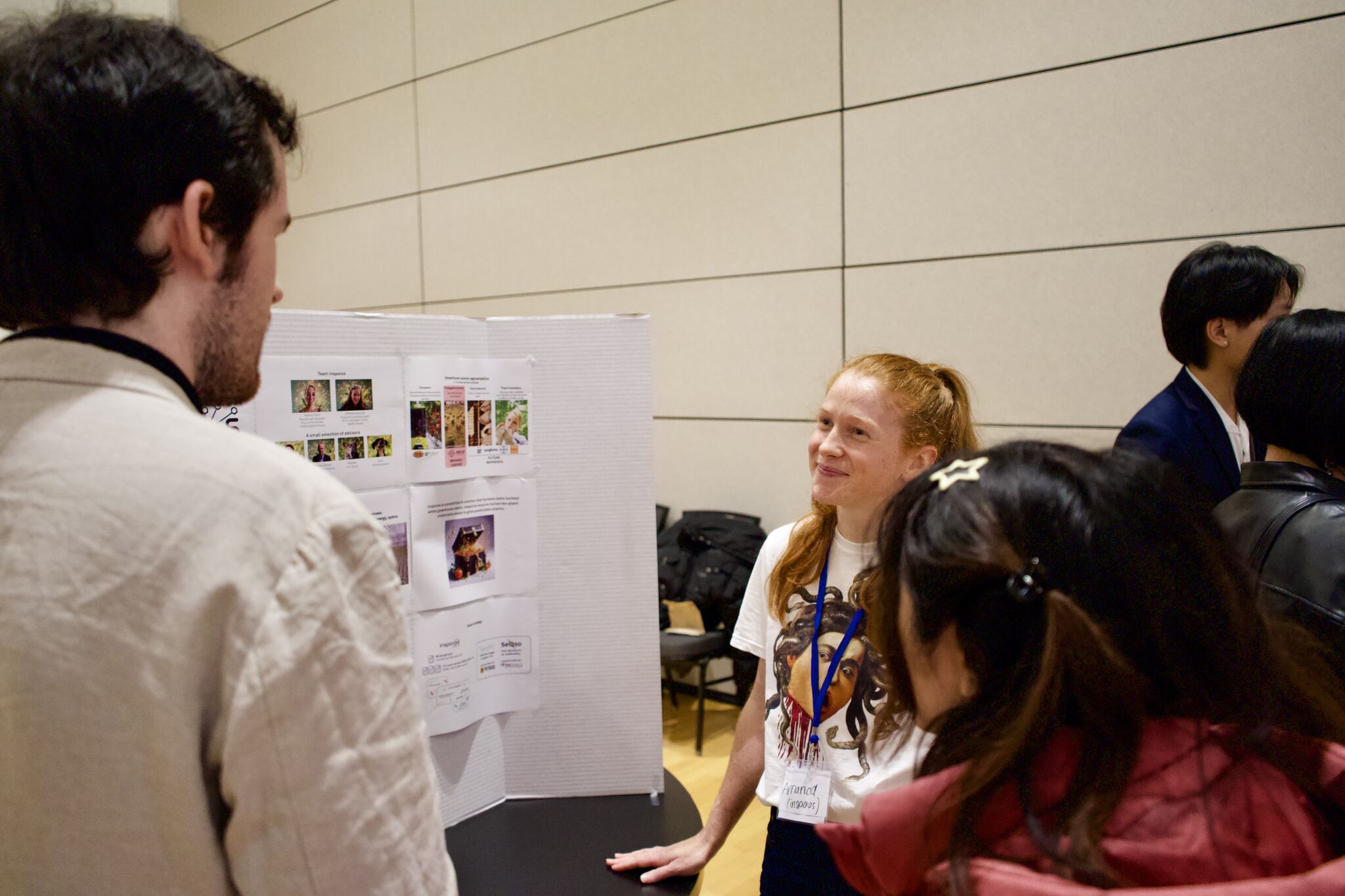
Insporos
2023 cohort
Insporos' intelligent seed sorting technology revolutionizes modern greenhouse operations, which are increasingly reliant on sensors and robotics that demand uniform plant growth. By identifying and eliminating diseased and defective seeds, Insporos helps growers avoid overplanting—a common practice due to the unpredictability of seed success, leading to significant resource waste. Traditionally, a typical greenhouse facility discards plants amounting to $15M annually in resources. However, by ensuring that every planted seed counts, Insporos' seed analysis platform significantly mitigates this waste, potentially saving facilities up to $10M per year in resource costs.
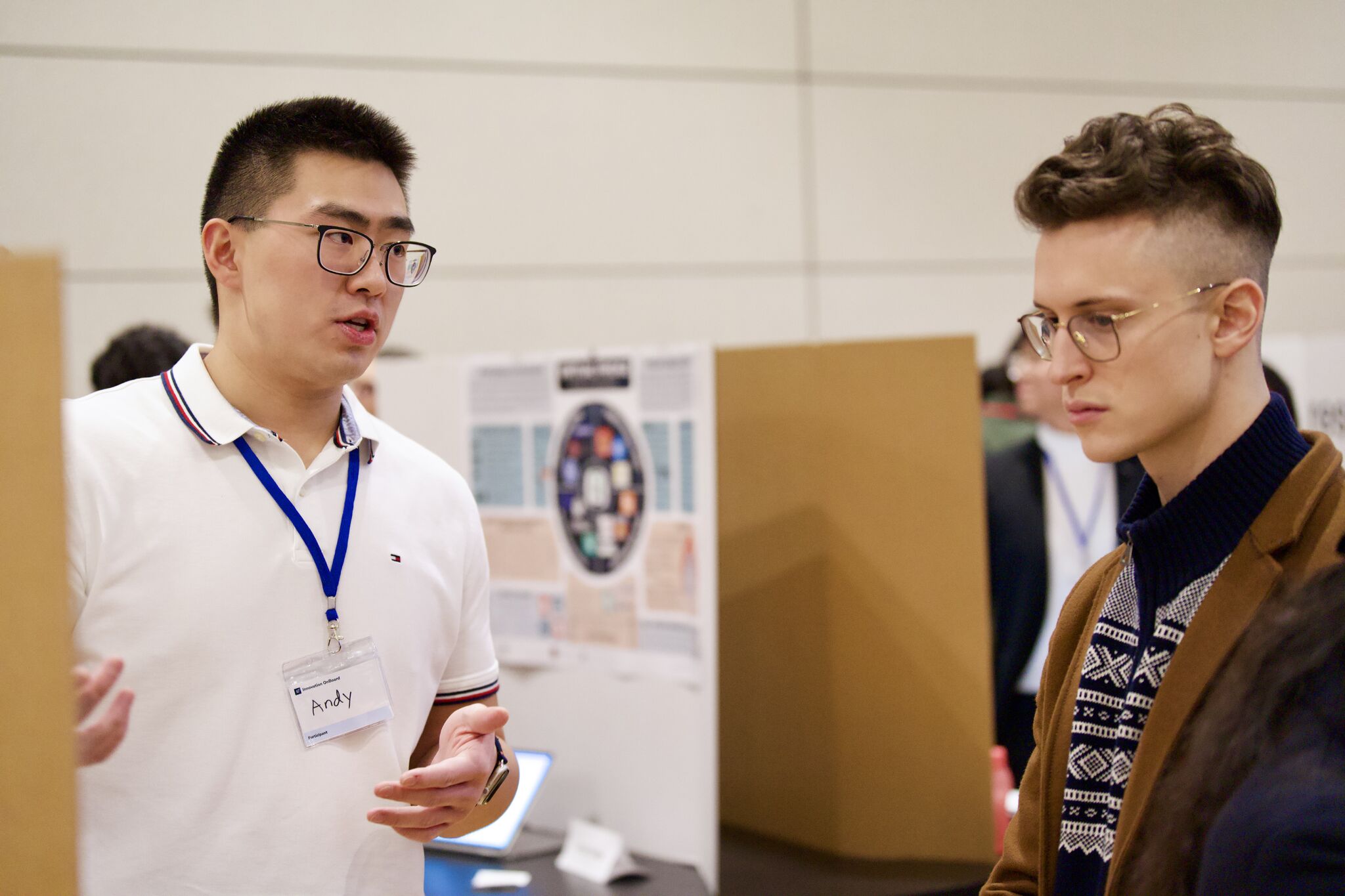
Nappi Lab
2023 cohort
Nappi Lab aims to improve the accuracy of early-stage testicular cancer and relapse detection through rolling circle amplification (RCA) and electrochemical biosensors with patient blood samples. Existing diagnostic methods put patients at risk of over-treatment and long-term chemotherapy toxicity. Our design is more personalized, sensitive, cost-efficient and easier to use. Preliminary results are promising and warrant further development of the design.
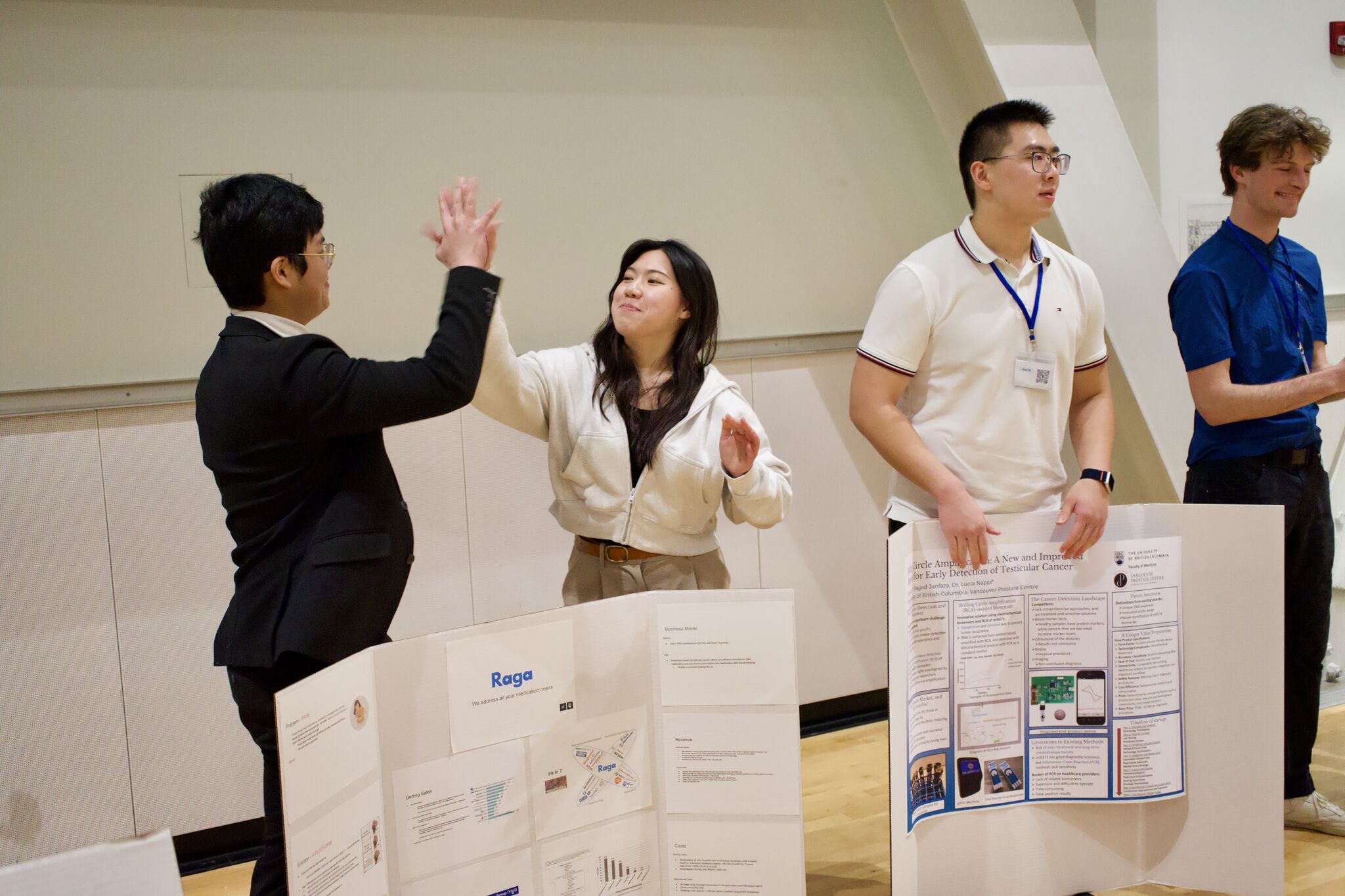
Raga
2023 cohort
Raga is a healthcare platform offering a streamlined experience for medication management to combat confusion over general medication selection. Users can effortlessly access Raga to interact with an advanced chatbot that provides accurate assessments based on primary medication data from industry partners. This personalized approach ensures users receive the most relevant information and guidance. Raga then enables users to purchase recommended medications directly through the platform, often at a lower cost, making healthcare more accessible and affordable. This blend of technology and user-centric design makes Raga a valuable disruptor in personal health management system.
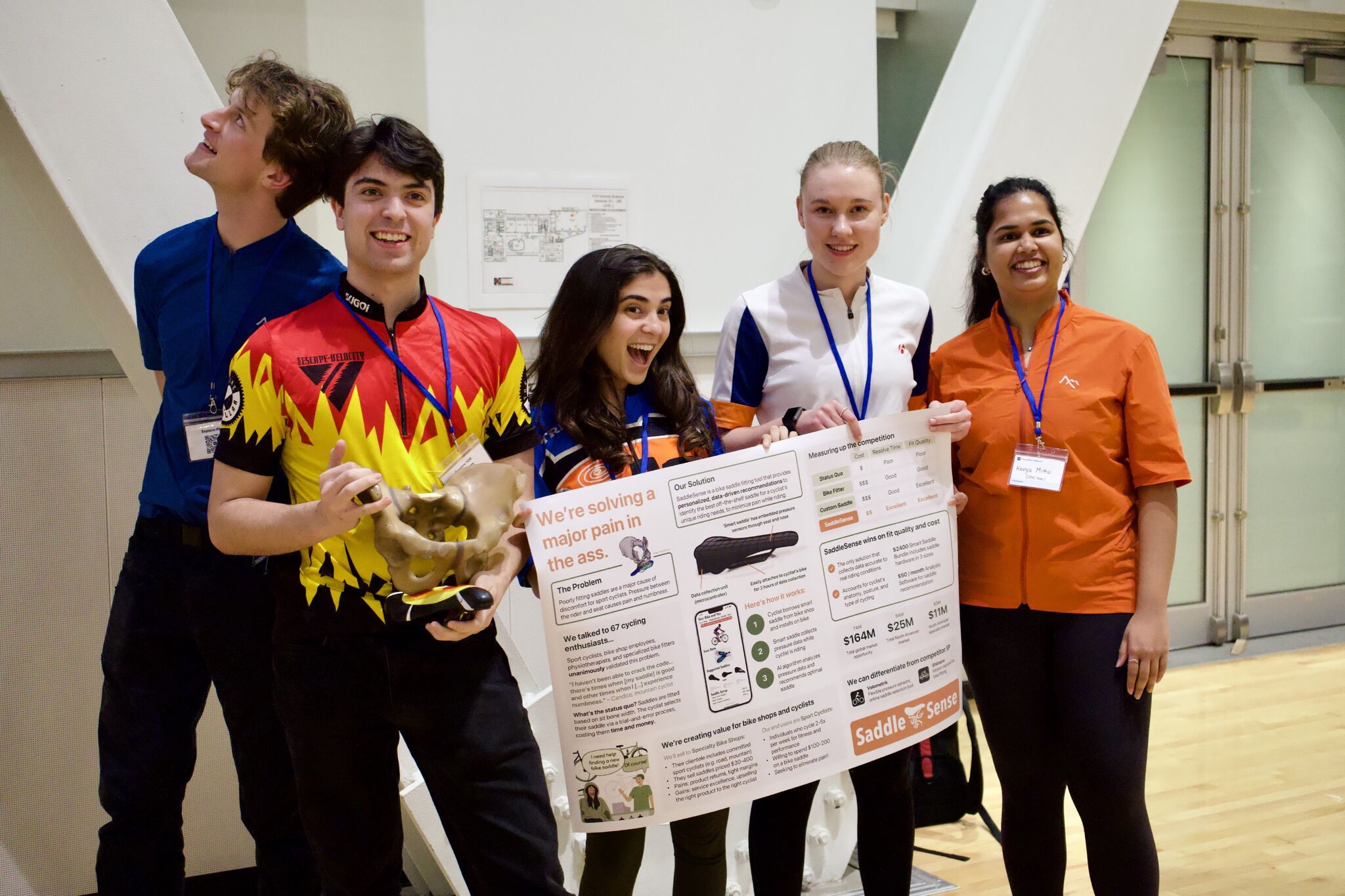
SaddleSense
2023 cohort
SaddleSense is a data-driven bike saddle fitting tool. For cyclists, poorly fitting saddles are a major source of discomfort while riding—pressure between their body and their bike saddle can cause acute pain and numbness. Our ‘smart’ saddle measures the pressure profile of the cyclist while riding and advises the cyclist on which off-the-shelf saddle to purchase, to optimize comfort and performance. SaddleSense removes uncertainty from the saddle buying process—so that cyclists can go the distance.
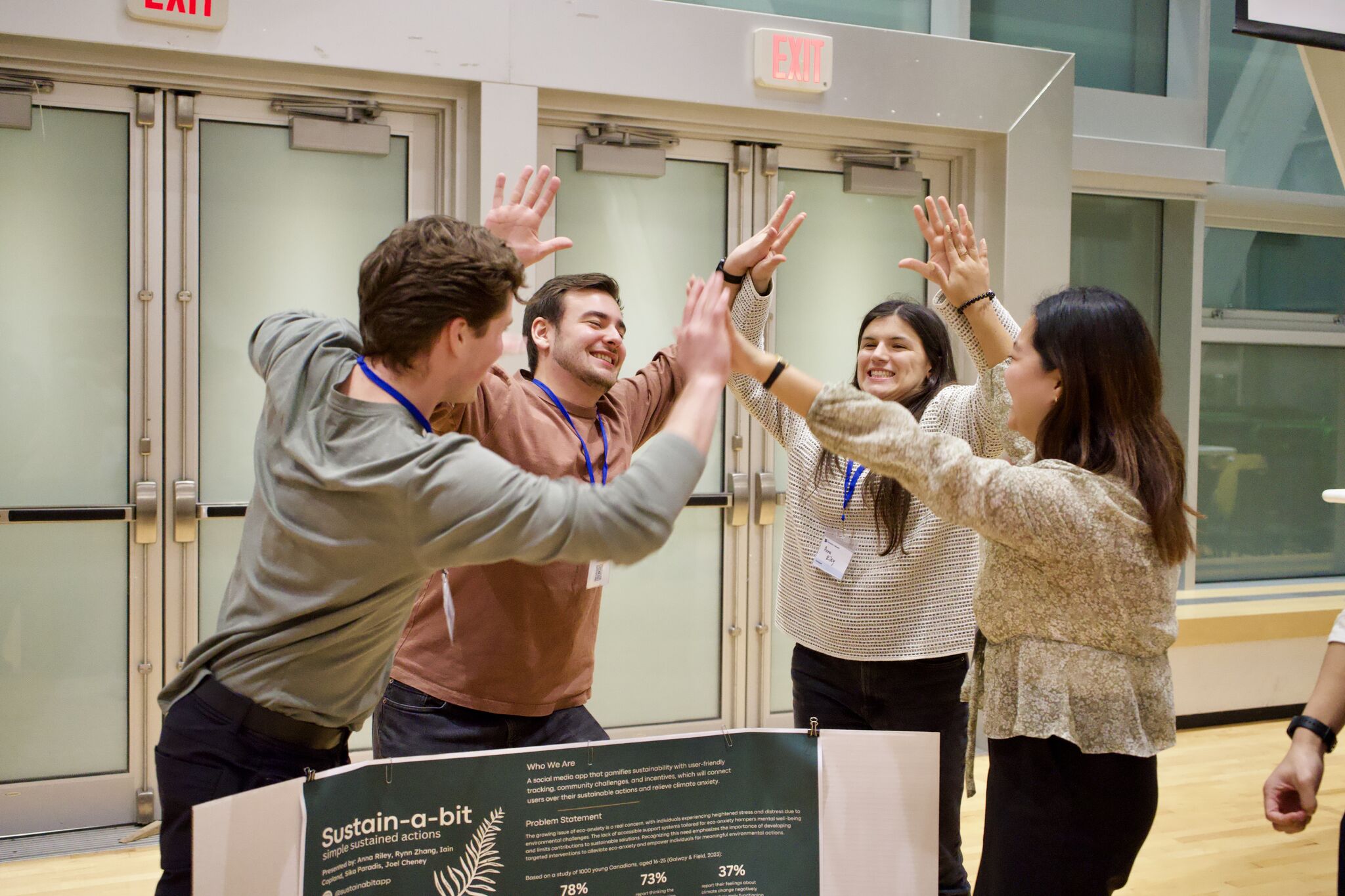
Sustain-A-Bit
2023 cohort
Sustain-A-Bit is a social media app that gamifies sustainability with user-friendly tracking, community challenges, and social incentives, which will connect users over their sustainable actions and relieve climate anxiety.
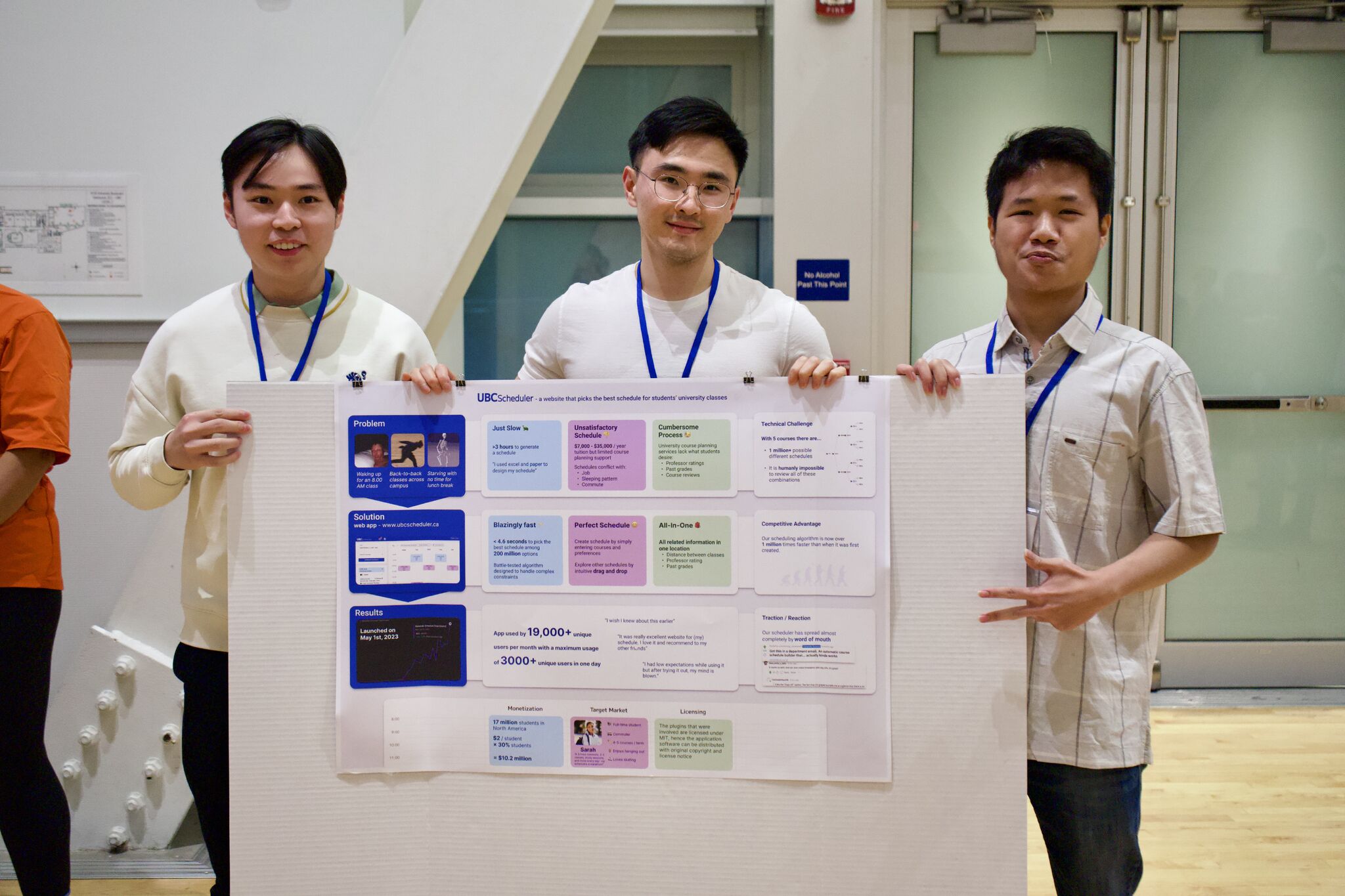
UBC Scheduler
2023 cohort
Introducing UBC Scheduler, our groundbreaking course scheduling app designed to tackle the widespread issue faced by 17 million North American students: time-consuming and inefficient course planning. After three years of meticulous research, we present an app that eradicates the hassle of manual scheduling. Say goodbye to the chaos of dashing between classes or missing meals. UBC Scheduler empowers students, from internationals paying $35,000 a year to locals choosing from 6000 courses, to easily craft the perfect schedule. With a simple click, embrace a transformed scheduling experience that prioritizes your success and preferences. Achieve your ideal schedule effortlessly!
Ventures 2017-2018
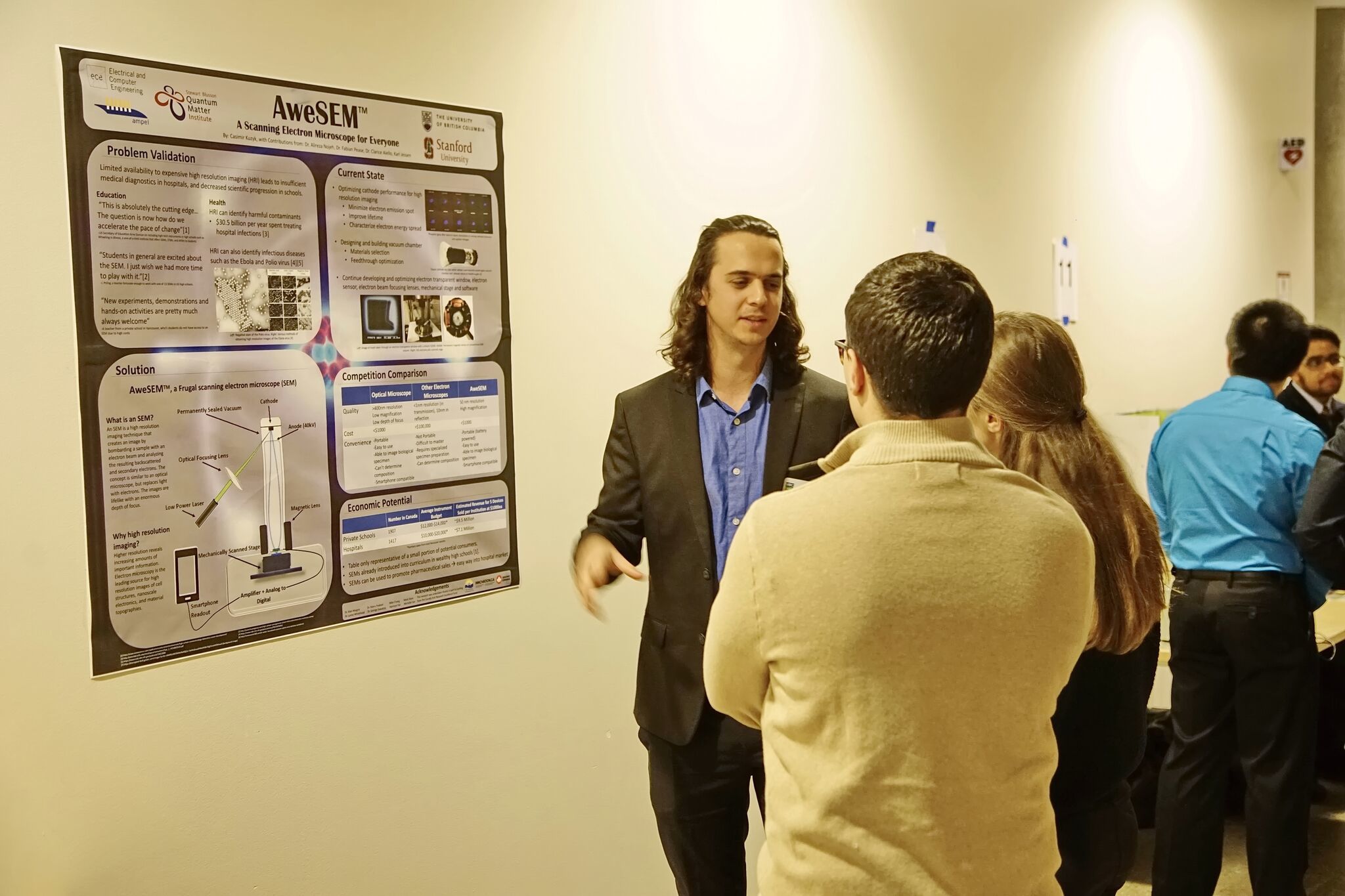
AweSEM
2017 cohort
In recent years there has been a boom in the pursuit of frugal science projects, which bring state-of-the-art technology to those who would typically not have access. However, many technologies are still waiting for innovative breakthroughs that will make them accessible to everyone. One of the most fascinating and useful areas of technology is high resolution imaging, which is typically done with an electron microscope. However, electron microscopy is reserved only to those who can afford the high cost - mainly top notch educational institutions and highly successful corporations. This leaves the less fortunate vulnerable to the ill effects of not being able to properly analyze or quantify their problems. An all too real example of this lies in health clinics around the world where complex medical diagnostic equipment, which includes electron microscopes, are not available due to the associated costs, leaving many to suffer the consequences. My innovative project consists of bringing electron microscopy to the masses by designing, building, and commercializing an inexpensive and portable scanning electron microscope.
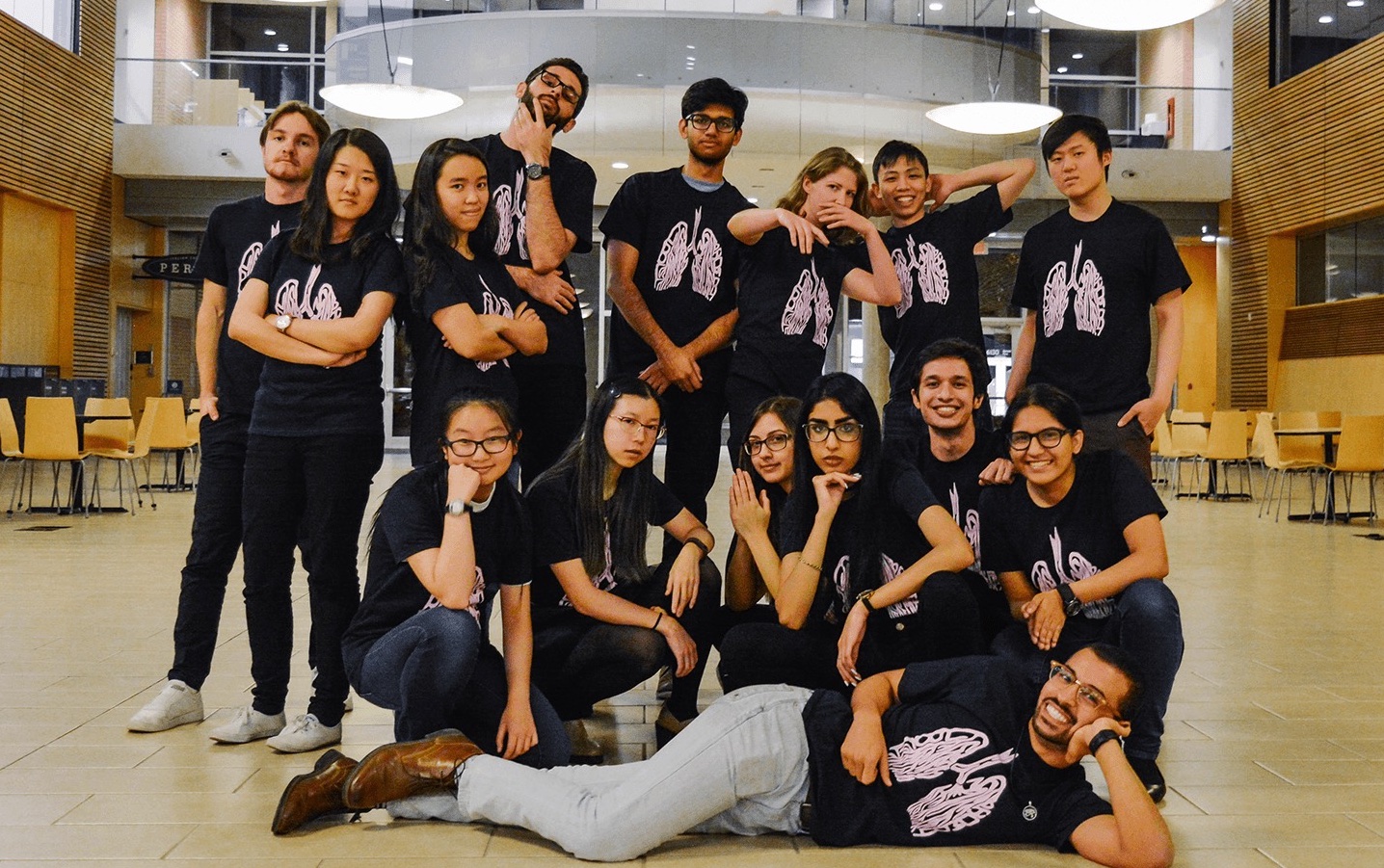
BIOMOD
2017 cohort
Each year, around 222,500 people are diagnosed with lung cancer in America. Most of these people’s lung cancer is diagnosed when it is already in its later stages. As a result, the survival rates of people with lung cancer is extremely low. Over the past 10 months, we have been developing an assay for the early detection of lung cancer from blood samples. This assay uses inexpensive components and does not require any additional expensive equipment compared to what can be found in most diagnostic labs.

CORE
2017 cohort
Lack of fluid identity confirmation and ownership of information. We want people to be able to constantly be able to prove their identity without needing the various IDs in circulation.We seek to create a system that operates on top of current peer-to-peer computing systems like Vitalik Buterin's Ethereum network. It would allow people, companies, and governments to own the information that they should own, and allow other parties to request information in a decentralized manner.

Cleo
2017 cohort
One in three women experiences urinary incontinence at some point in their lives. This often happens after trauma, such as childbirth. Current best practice guidelines show that pelvic floor exercises (Ke- gels) are effective in fixing this. We will design a device (molded vagi- nal-shaped probe from medical grade silicone) that will be inserted into the vagina to guide women to do Kegels correctly. A mobile app will provide biofeedback. The invention will use near-infrared spec- troscopic technology for non-invasive transvaginal monitoring of urological tissues. The device and the app will be offered directly to women and will be used for pelvic floor exercises at home.
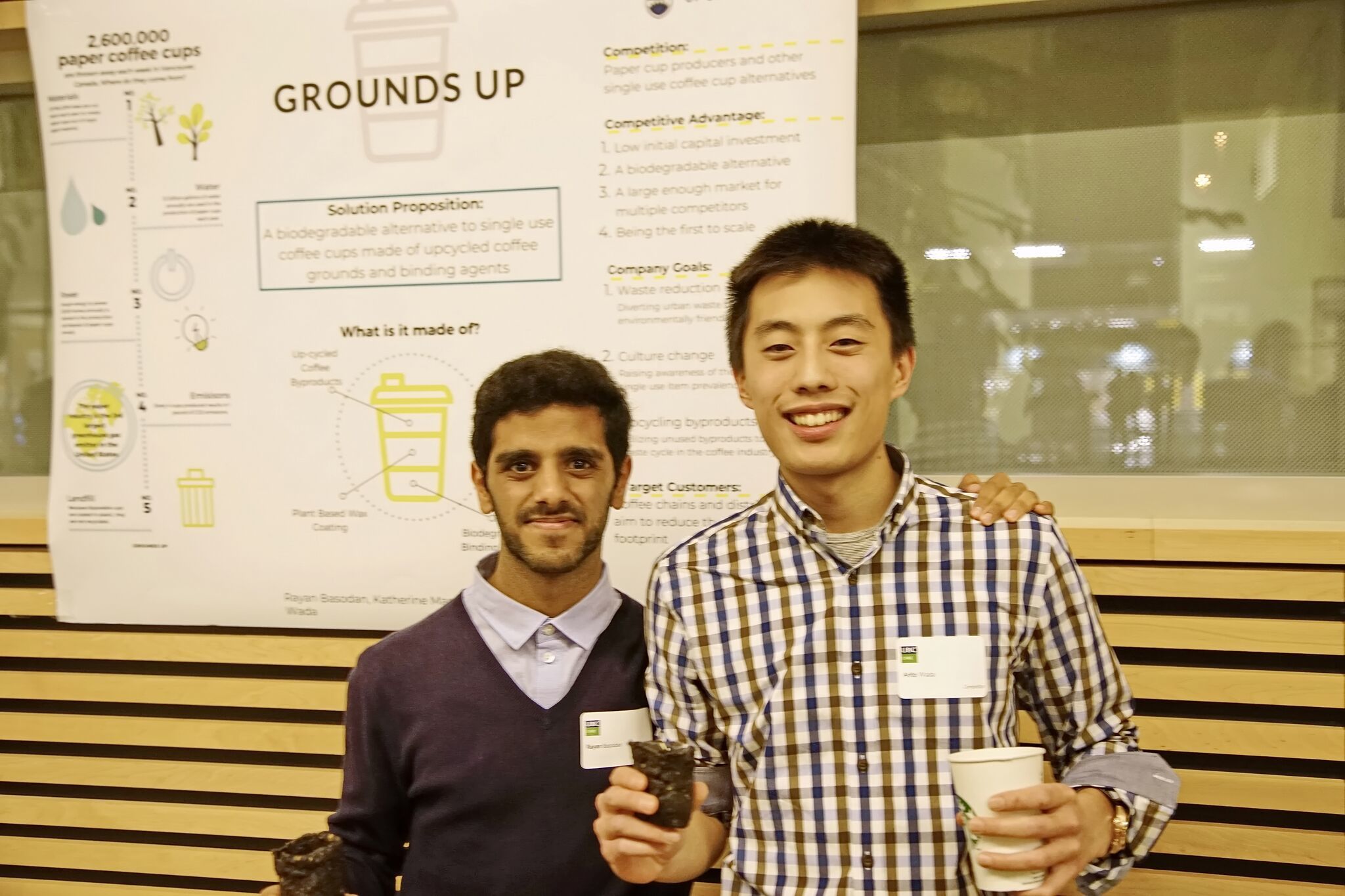
GroundsUp
2017 cohort
According to the City of Vancouver, 2.6 million disposable coffee cups are wasted every week within the municipality, a statistic that is representative of North American urban culture of single-use item consumption. To sustain this habit, the production of single-use coffee cups results in the excessive exploitation of natural resources and also contributes to a large portion of urban waste and landfill mass. Grounds-Up Solutions is currently devel- oping a compostable single-use hot beverage cup alternative that is made from used coffee grounds and natural binding agents. This solution would help preserve our planet’s natural resources and reduce the quantity of non-compostable waste, all in an eco- nomical manner.
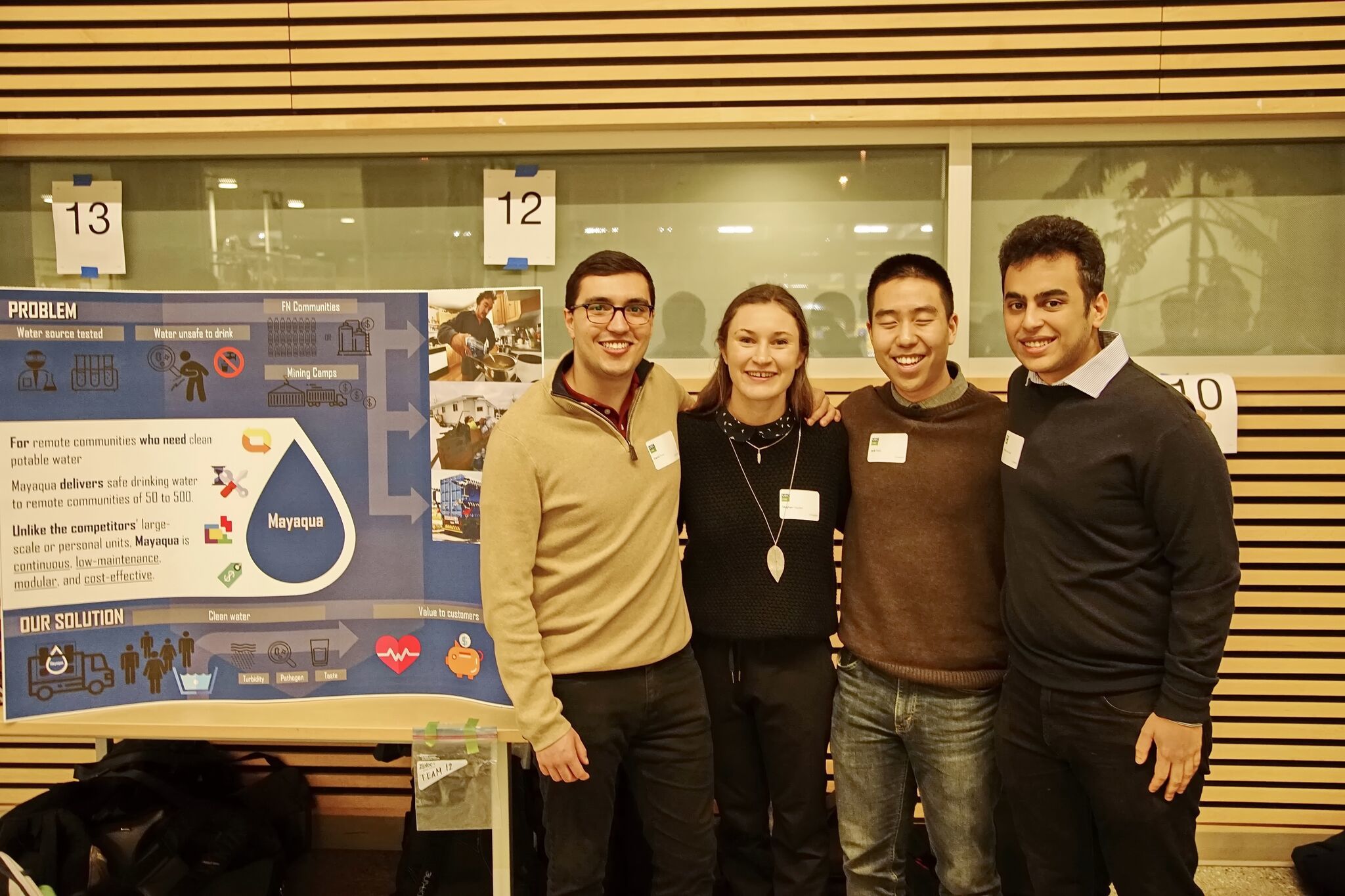
Mayaqua
2017 cohort
Safe water is a basic human right, yet over 100 communities in Canada don't have this fulfilled. Communities are looking for a continuous, reliable, low-maintenance, and cost-effective solution to provide potable water. Mayaqua is a modular drinking water treatment system that meets these criteria. Our current prototype is designed to fulfill the needs of around 100 people, with future iterations being planned to scale up to 500 people. In addition, there will be customized solutions for communities with special issues, such as high concentrations of arsenic.